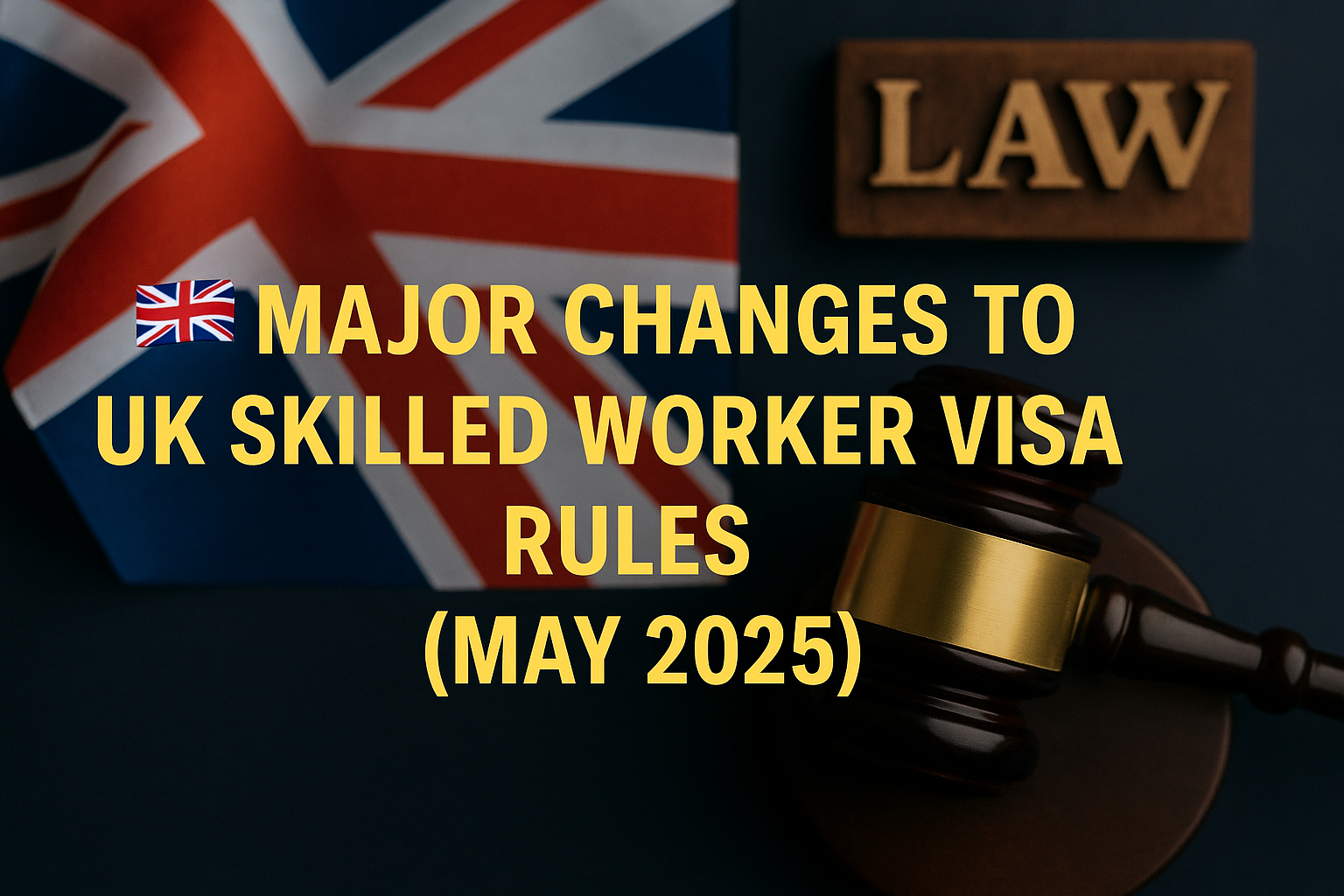On May 12, 2025, the UK government released a sweeping white paper detailing reforms to its immigration system—specifically targeting the Skilled Worker visa route. These changes aim to lower net migration while refocusing the system toward higher-skilled roles and long-term economic benefit.
🎓 Elevated Skill Requirements
The required skill level for Skilled Worker visa eligibility has increased from RQF Level 3 (A-level) to RQF Level 6 (graduate level). This move eliminates around 180 job roles from the eligible occupation list, affecting industries such as hospitality, logistics, and parts of health and social care.
💷 Higher Salary Thresholds
The salary threshold has been raised to £38,700 per year for most applicants. For health and care roles, a lower—but still increased—minimum of £25,000 now applies. The aim is to ensure migrant workers are aligned with economic contribution expectations.
🏥 Closure of Overseas Recruitment for Social Care
The UK has officially closed overseas recruitment for social care positions. A grace period is in place until 2028 for current visa holders to switch or extend, but no new care workers can be sponsored from abroad.
🗣️ Tougher English Language Rules
The minimum English requirement for applicants has risen to B2 level (formerly B1). Adult dependents must now meet an A1 requirement and upgrade to A2 during any extension application. This aligns with increased integration goals.
🕒 Longer Path to Settlement
Applicants under most visa categories must now wait 10 years (up from 5) before becoming eligible for Indefinite Leave to Remain (ILR). This major shift lengthens the journey to permanent residency in the UK.
💼 Increased Employer Sponsorship Costs
The Immigration Skills Charge has risen by 32%, making it more expensive for companies to sponsor workers. Crucially, employers can no longer recover these costs from sponsored employees, further increasing the cost of sponsorship compliance.
These changes mark a significant transformation in the UK's immigration landscape. Both employers and skilled workers must adjust to the new requirements and timelines if they wish to live or hire talent in the UK under the Skilled Worker route.



